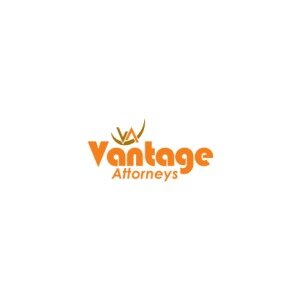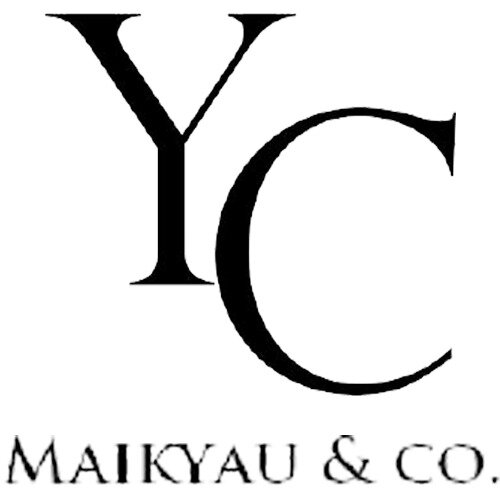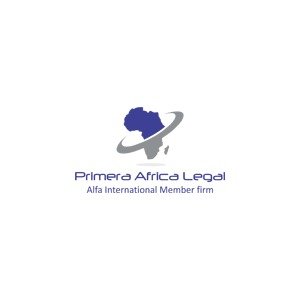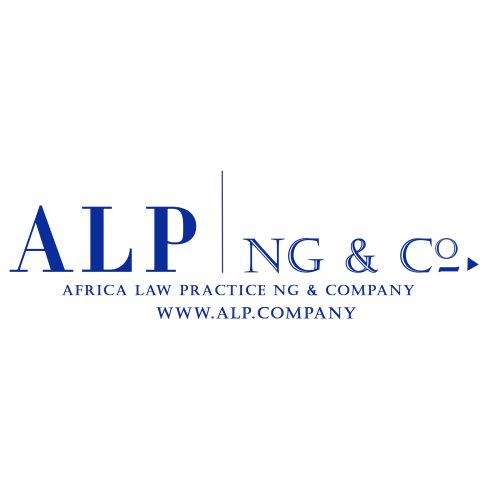Best Energy Regulatory Law Lawyers in Abuja
Share your needs with us, get contacted by law firms.
Free. Takes 2 min.
List of the best lawyers in Abuja, Nigeria
About Energy Regulatory Law in Abuja, Nigeria
Energy Regulatory Law in Abuja, Nigeria pertains to the legal framework governing the generation, transmission, distribution, and consumption of energy, with an emphasis on electricity, gas, and renewable energy sources. As the capital city and administrative hub, Abuja is home to pivotal regulatory bodies overseeing the Nigerian energy sector. The laws and regulations impact a diverse range of stakeholders including utility companies, independent power producers, consumers, investors, and government agencies. The field is meticulously regulated to ensure safety, fair competition, environmental sustainability, and access to energy services.
Why You May Need a Lawyer
Engaging with Nigeria’s energy sector can present complex legal challenges. Here are some common situations where the advice of a specialized Energy Regulatory Law lawyer could be necessary:
- Applying for licences to generate, transmit, or distribute electricity or other forms of energy
- Negotiating Power Purchase Agreements or Gas Supply Agreements
- Participating in public procurement processes for energy projects
- Responding to regulatory investigations or compliance audits
- Resolving disputes between energy companies, government agencies, or consumers
- Understanding tariff and rate setting regulations
- Complying with environmental and safety standards in energy operations
- Due diligence in mergers and acquisitions within the energy sector
In such scenarios, a lawyer will help interpret the relevant laws, prepare documentation, represent you before regulatory agencies, and protect your legal interests.
Local Laws Overview
Energy regulation in Abuja is primarily governed by federal legislation and enforced by regulatory agencies with headquarters based in the city. The key legal instrument is the Electric Power Sector Reform Act 2005, which unbundled the sector and established the Nigerian Electricity Regulatory Commission (NERC). NERC is tasked with issuing licences, setting tariffs, and ensuring compliance with operational standards.
Other notable laws include:
- Petroleum Act and Petroleum Industry Act for oil and gas operations
- Environmental Impact Assessment Act for environmental compliance
- Nigerian Oil and Gas Industry Content Development Act for local content requirements
- Renewable Energy Policy and regulations for non-fossil fuel projects
Local rules pertain to electricity charges, complaints management, dispute resolution, rural electrification, and consumer protection. Stakeholders are required to comply with the rules issued by regulatory authorities like NERC and, for gas, the Nigerian Midstream and Downstream Petroleum Regulatory Authority (NMDPRA).
Frequently Asked Questions
What is the main agency regulating electricity in Abuja?
The Nigerian Electricity Regulatory Commission (NERC) is the main body regulating electricity, including licensing, tariff setting, and consumer protection.
How do I obtain a licence to operate an energy business?
Licences for generation, transmission, distribution, trading, and system operations must be obtained from NERC. The process involves application submission, documentation, review, and sometimes public hearings.
Are there special rules for renewable energy projects?
Yes, Nigeria has introduced policies and regulations to incentivize renewable energy investments, including special tariffs, licensing procedures, and environmental compliance standards.
How are electricity tariffs determined?
Tariffs are set by NERC based on cost-reflective models, market realities, and public consultations to ensure fairness to both providers and consumers.
What legal issues arise in power purchase agreements?
Issues often involve contract terms, tariff structures, force majeure, compliance with local regulations, terminations, and dispute resolution mechanisms.
Can consumers resolve complaints legally?
Yes, consumers can escalate complaints to the NERC Forum Office if not resolved by their distribution company. Legal representation can assist with formal hearings and appeals.
Are foreign investors allowed in the energy sector?
Foreign investors are welcome subject to company registration, compliance with investment laws, and sector-specific licensing and local content regulations.
What is the significance of the Petroleum Industry Act?
The Petroleum Industry Act reforms Nigeria’s petroleum sector, introduces new regulatory bodies, changes licensing requirements, and emphasizes local content and environmental protection.
How are environmental concerns addressed in energy projects?
Entities must conduct Environmental Impact Assessments and comply with guidelines from regulatory agencies to minimize adverse environmental effects.
How can energy sector disputes be resolved?
Disputes may be settled through regulatory forums, arbitration, or court litigation. Lawyers help select the most appropriate dispute resolution method and represent parties throughout the process.
Additional Resources
For further information and support, the following resources and organizations are recommended:
- Nigerian Electricity Regulatory Commission (NERC) - for licensing, tariffs, and consumer complaints
- Nigerian Midstream and Downstream Petroleum Regulatory Authority (NMDPRA) - for regulations relating to natural gas and petroleum
- Federal Ministry of Power - for policy oversight and electrification programs
- Nigerian National Petroleum Company Limited (NNPC) - for matters relating to the oil and gas industry
- Nigerian Environmental Standards and Regulations Enforcement Agency (NESREA) - for environmental compliance
- Energy law sections of the Nigerian Bar Association - for expert lawyer referrals
Next Steps
If you require legal assistance in Energy Regulatory Law in Abuja, Nigeria, consider the following steps:
- Clearly define the scope and nature of your legal or regulatory issue
- Gather all relevant documents, contracts, licences, and correspondence
- Identify and contact a reputable lawyer or law firm with expertise in energy regulatory matters
- Schedule an initial consultation to discuss your concerns, possible legal strategies, and estimated timelines
- Work closely with your legal advisor to ensure compliance with all applicable local and federal regulations
- Keep records of all interactions with regulatory authorities and legal counsel for future reference
Seeking expert legal advice early can prevent costly mistakes, facilitate regulatory compliance, and ensure your rights and interests are well protected throughout any energy-related matter in Abuja, Nigeria.
Lawzana helps you find the best lawyers and law firms in Abuja through a curated and pre-screened list of qualified legal professionals. Our platform offers rankings and detailed profiles of attorneys and law firms, allowing you to compare based on practice areas, including Energy Regulatory Law, experience, and client feedback.
Each profile includes a description of the firm's areas of practice, client reviews, team members and partners, year of establishment, spoken languages, office locations, contact information, social media presence, and any published articles or resources. Most firms on our platform speak English and are experienced in both local and international legal matters.
Get a quote from top-rated law firms in Abuja, Nigeria — quickly, securely, and without unnecessary hassle.
Disclaimer:
The information provided on this page is for general informational purposes only and does not constitute legal advice. While we strive to ensure the accuracy and relevance of the content, legal information may change over time, and interpretations of the law can vary. You should always consult with a qualified legal professional for advice specific to your situation.
We disclaim all liability for actions taken or not taken based on the content of this page. If you believe any information is incorrect or outdated, please contact us, and we will review and update it where appropriate.

















